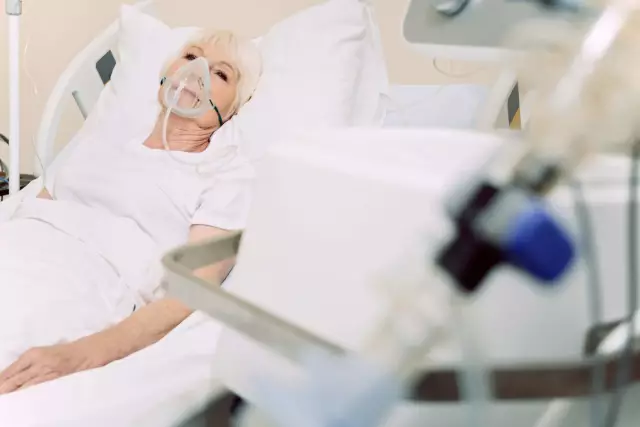- Author Rachel Wainwright [email protected].
- Public 2023-12-15 07:39.
- Last modified 2025-11-02 20:14.
Knee injury
Basic information
In the process of life, each person, sooner or later, suffers minor knee injuries. This can be facilitated by both our normal body movements and wear of the knee structures or some external circumstances. Sports, entertainment, outdoor activities, and even the simplest household chores are all potential risk factors. That is why in our article we decided to talk about the most common knee problems, as well as what to do after a knee injury.
Sudden (acute) injuries

This is the most common type of injury. Sudden injuries are the result of direct knee impact, leg twisting, or excessive bending. The unpleasant symptoms appear immediately after a knee injury and are severe pain, swelling and bruising, some of which can be very serious. In addition to the above symptoms, acute knee injuries cause weakness, numbness, tremors in the legs, cold and blue skin.
As for the typology of injuries, experts identify the following types of knee injuries:
- sprains of ligaments and tendons;
- rupture of ligaments or rubber-like joint spacers (menisci);
- cracks in the kneecap, fractures;
- dislocation of the patella;
- dislocated knee
Overuse Knee Injuries
This type of damage is associated with repetitive actions and sustained stress. The reasons can be sports and difficult working conditions, which cause:
- inflammation of the synovial bags;
- small tears in the tendons;
- twisting of the knee ligaments;
- irritation of fibrous connective tissue.
In addition, a knee injury, the treatment of which requires immediate medical attention, may appear after orthopedic diseases such as osteoarthritis or popliteal cyst.
What to do after a knee injury?
Treatment of knee cap and joint injuries includes both urgent medical attention and various medications, physiotherapy, splinting and rest. The choice of a method for treating a knee injury is based on the severity of the injury, the patient's age, general health, and some other factors. Emergency care after a knee injury is required in the following cases:
- dislocations, displacement of the knee joint;
- signs of pain shock;
- bleeding in the area of the damaged area;
- crushing bone.
In all these cases, it is necessary to immediately call an ambulance, since every minute of delay promises the patient very serious complications, up to the loss of the damaged knee.
Knee Injury - Home Treatment

If your doctor has prescribed home treatment, then our tips will help you relieve pain, swelling and stiffness in the knee area:
- provide the sore knee with rest, change your occupation if they are associated with significant physical exertion or deliver unpleasant, painful sensations;
- slight swelling and slight pain are successfully relieved with regular ice. Do the ice compress 3 times a day for 10-20 minutes, and you will immediately feel relief;
- in the first two days after a knee injury, you must give up hot showers, baths, hot compresses and alcoholic beverages;
- if the patient's condition allows doing small exercises, then you should not give up them, since light loads help to maintain the flexibility of the joints;
- if a bandage is applied to the damaged area, then do not tighten it too tightly - this can lead to an increase in swelling;
- do not remove the bandage without the permission of the doctor - it is quite possible that he has suspicions of serious injury and therefore non-compliance with the recommendations can lead to all sorts of complications;
- Use a cane or crutches to relieve stress on the injured knee.
YouTube video related to the article:
The information is generalized and provided for informational purposes only. At the first sign of illness, see your doctor. Self-medication is hazardous to health!






